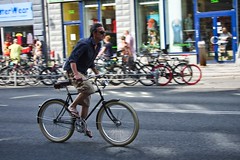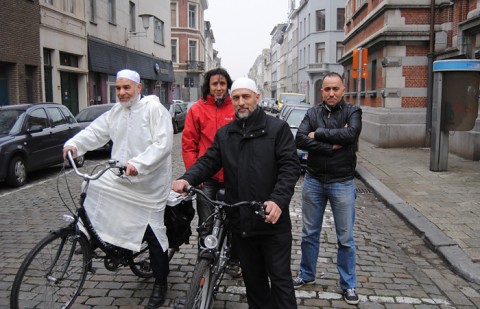
What IS it about Antwerp? Like I've been blogging about, it's quite a suprising city on so many levels. Here's another example.
While many "bicycle enthusiasts" get all neo-sanctimonious about bicycles, let's see how "religious enthusiasts" use the bicycle. Oh, wait... they use it just like any other Citizen Cyclist.
The Muslim community in the Borgerhout neighourhood of Antwerp arranged a bike ride. Participants paid €2 to take part and the proceeds went to a school project in Kebdana, a village in Northern Morocco. They also hoped to promote better bicycle facilities and parking, as well as bringing all the different people in the community together.
The Fietsersbond donated two bikes to Kebdana and two others to teach new arrivals from Morocco how to cycle.
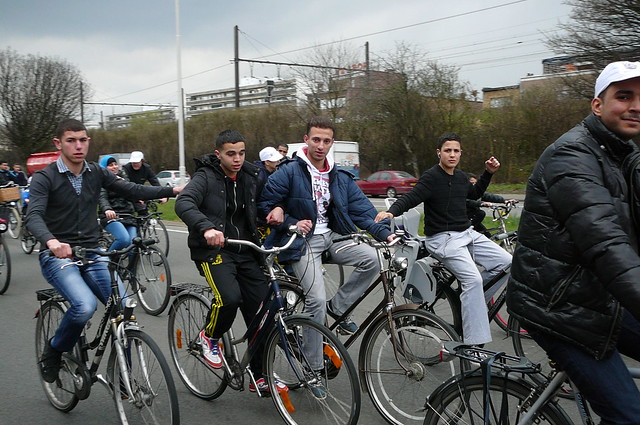
My friend Stef, from the Belgian NGO Fietsersbond.be took these shots a few weeks back.
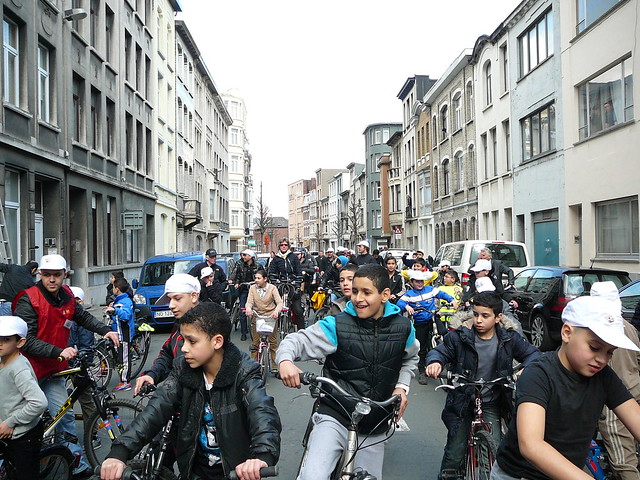
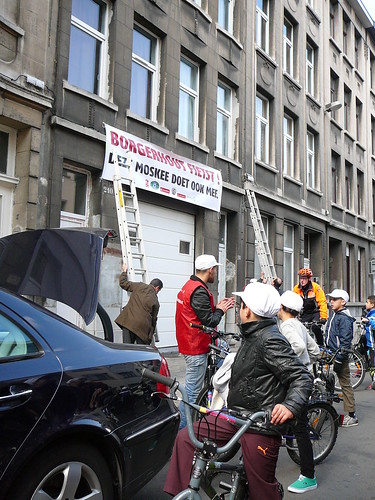
The ride went past six different mosques and it was promoted by the imams - top photo. Each mosque got a banner that reads: "Borgerhout Cycles! And this mosque is in on it, too".


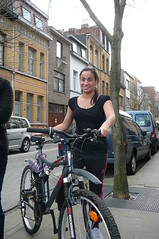
A festive day by all accounts. A repeat next year is on the cards.
Heres a film about ride from the website Steunproject.be.

Of course, a bicycle repair cargo bike was on hand, too.
Okay. Cool, right? Wait til you see what goes on in another neighbourhood in Antwerp.
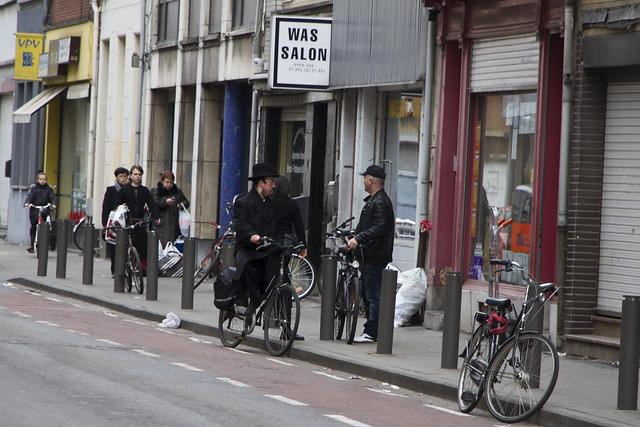
Copenhagenize Consulting were talking to an architect in Israel last year. He lives in a town with a lot of Hasidics and was wondering how to get them onto bicycles. They lacked role models, basically. I figured that getting photos of like-minded Hasidics in other countries would help. In the neighbourhoods in Montreal with a lot of Hasidics, I've heard that many of them ride bicycles but I've never caught a photo of it.
I've more than made up for it. Last Saturday I rode through this Antwerp neighbourhood and it was a buzz with bicycles. I love the above shot - two citizens from different backgrounds have a chat on their bicycles.

Everywhere I looked, there were Hasidics moving about their 'hood on bicycles.
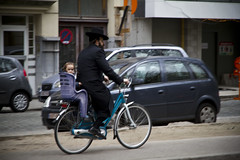
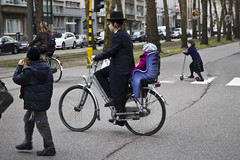

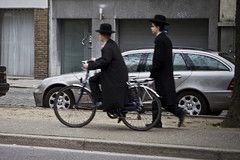
Go Antwerp! Fantastic.
The Hasidic community in Brooklyn have made themselves famous by their opposition to bike lanes through their neighbourhood. But I'm curious if any New York readers could tell us if they ride bicycles?
So while were on the 'Bicycles Bring the World Together After Religion Screwed It Up' topic, let's get some of the others into the post:
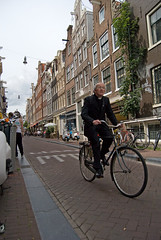

Catholic priest in the Netherlands, via Daniel Rink on Flickr. Buddhist monks in Laos, via Exodus Travels on Flickr.
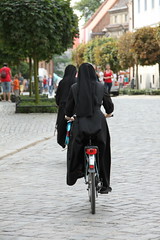

Nuns on bicycles in Poland, via Klearchos Kapoutsis on Flickr and a nun in New York City, via Warzerjaff on Flickr.
Oh, and here's a humanist, for good measure:
